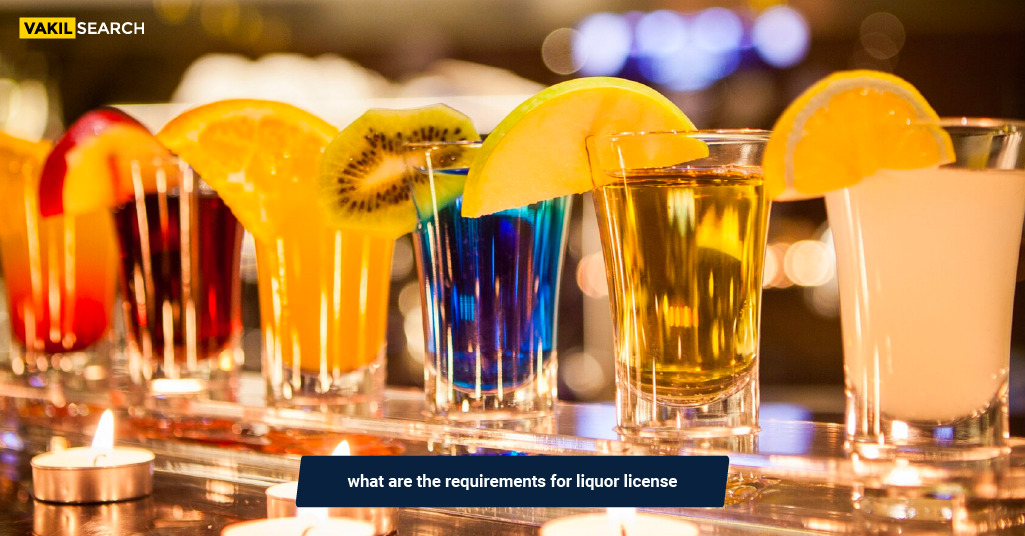Liquor licenses in India regulate alcohol sales, ensuring responsible consumption and generating revenue.
Introduction to Liquor Licenses in India
The alcohol market in India is huge and heavily regulated. To start a business selling alcohol, you need to fully understand the licensing rules in this industry.
Overview of the Alcohol Industry in India
The alcohol industry in India is successful because of the growing middle-class population and the increasing trend of social drinking. The market offers a variety of beverages, including wines and fortified spirits. It’s important to remember that:
- Each type of liquor has unique regulations, levied taxes, and licensing rules.
- The alcohol market is under the jurisdiction of the Indian state governments, meaning liquor laws tend to differ from state to state.
What is a Liquor License?
In India, the Excise Department of each state issues a liquor license. This mandatory license allows establishments like restaurants, bars, hotels, and clubs to manufacture, distribute, and sell alcoholic beverages within the state.
Importance of Liquor Licenses for Alcohol-Related Businesses
Liquor licenses play a vital role in the alcohol business in India. These licenses keep businesses legal, preventing unnecessary closure or hefty fines. They also instil a sense of responsibility towards one’s customers and the larger public, helping to maintain a balance between business interests and public health.
Businesses that sell or serve alcohol must have a liquor license. A liquor license gives legal permission and encourages responsible alcohol practices.
-
Legality and Compliance
Liquor licenses ensure that businesses operate legally and comply with all applicable laws and regulations governing the sale and consumption of alcohol. This includes adherence to age restrictions, permitted hours of operation, responsible serving practices, and taxation requirements. Businesses risk fines, imprisonment, and revocation without a valid liquor license.
-
Public Health and Safety
Liquor licenses contribute to public health and safety by promoting responsible alcohol consumption and minimizing the risks associated with alcohol abuse. This includes preventing underage drinking, reducing drunk driving incidents, and maintaining a safe and orderly environment for patrons.
-
Business Reputation and Credibility
Possessing a liquor license enhances the reputation and credibility of alcohol-related businesses. It demonstrates a commitment to legal compliance, responsible alcohol practices, and customer safety. This can attract a wider customer base and foster trust among patrons.
-
Competitive Advantage
In a competitive market, holding a liquor license can provide a significant advantage over unlicensed establishments. It allows businesses to offer a wider range of products and services, attract a broader clientele, and potentially generate higher revenue.
-
Revenue Generation
Liquor licenses contribute to the revenue of alcohol-related businesses through the sale of alcoholic beverages. The profit margins on alcohol can be substantial, making it a lucrative source of income for restaurants, bars, hotels, and other establishments.
-
Economic Impact
The alcohol industry contributes significantly to the overall economy, providing employment opportunities, generating tax revenue, and stimulating tourism. Liquor licenses play a crucial role in facilitating these economic benefits.
-
Consumer Choice and Preferences
Liquor licenses allow consumers to have a wider range of choices and preferences when it comes to alcohol consumption. It enables them to enjoy alcoholic beverages in a variety of settings, such as restaurants, bars, and social gatherings.
-
Responsible Consumption Culture
Liquor licenses promote a culture of responsible alcohol consumption by encouraging businesses to adhere to responsible serving practices, providing designated driver programs, and offering non-alcoholic alternatives.
-
Community Engagement and Partnerships
Alcohol-related businesses can engage with their communities and form partnerships to promote responsible alcohol consumption and address alcohol-related issues. Liquor licenses facilitate these collaborations.
Types of Liquor Licenses in India
Starting a business in the alcohol industry in India can be confusing because there are different types of liquor licenses available. Knowing these different licenses and their purposes can help you avoid complications when you’re opening a bar, restaurant, or retail store.
Different Types of Liquor Licenses Available
Explanation of Each Type and Its Specific Requirements
Each license type comes with its unique set of requirements. Whether you’re a manufacturer, wholesaler, or retail dealer, understanding the specifics of the license you’re pursuing will help you ensure that you’re on the right track.
- FL-1 License:
Purpose: Wholesale distribution of Indian liquor
Requirements:
- Applicant must be a registered company or partnership firm
- Applicant must have adequate storage facilities
- Applicant must have a clean track record and no criminal convictions
- FL-2 License:
Purpose: Wholesale distribution of foreign liquor
Requirements:
- Applicant must be a registered company or partnership firm
- Applicant must have adequate storage facilities
- Applicant must have a clean track record and no criminal convictions
- FL-3 License:
Purpose: Distribution of foreign liquor to hotel guests in their rooms
Requirements:
- Applicant must be a registered hotel with a minimum of 30 rooms
- The hotel must have a dedicated bar or restaurant area
- The hotel must have a clean track record and no criminal convictions
- FL-4 License:
Purpose: Serving alcohol at private parties held within a private resort or apartment
Requirements:
- Applicant must be the owner or occupant of the premises
- The event must be for a specific occasion, such as a wedding or birthday party
- The event must be held within a private residence or resort
- FL-5 License:
Purpose: Serving alcohol in restaurants or bars on hotel grounds
Requirements:
- Applicant must be a registered hotel with a minimum of 30 rooms
- The hotel must have a dedicated bar or restaurant area
- The hotel must have a clean track record and no criminal convictions
- FL-6 License:
Purpose: Retail sale of breweries and Indian liquors
Requirements:
- Applicant must be a registered company or partnership firm
- Applicant must have a retail outlet with adequate storage facilities
- Applicant must have a clean track record and no criminal convictions
- FL-10 License:
Purpose: Retail sale of foreign liquor
Requirements:
- Applicant must be a registered company or partnership firm
- Applicant must have a retail outlet with adequate storage facilities
- Applicant must have a clean track record and no criminal convictions
- FL-19 License:
Purpose: Clubs to sell foreign alcohol
Requirements:
- Applicant must be a registered club with a minimum of 50 members
- The club must have a dedicated bar area
- The club must have a clean track record and no criminal convictions
Liquor license fees and taxes vary from state to state. Applicants must comply with all applicable laws and regulations governing the sale and consumption of alcohol. Liquor licenses are subject to periodic inspections by the Excise Department
Legal Requirements for Obtaining a Liquor License
If you want to enter the alcohol industry in India, the first step you should take is to understand the legal requirements for obtaining a liquor license. Below, we will explore these specifics in more detail.
Eligibility Criteria for Applicants
To start, let’s talk about who can actually apply for a liquor license. There are three key eligibility criteria:
The applicant must be an adult of at least 25 years of age.
They shouldn’t have any criminal background.
The business premises should comply with safety and health regulations.
Documentation and Paperwork Needed
Getting all your paperwork right is critical in this process. Here’s a list of documents you would generally need to apply for a liquor license in India:
Proof of age and identity such as a passport or driver’s license.
Proof of address of the premises.
A no-objection certificate from the local police.
A copy of the property title or lease, if applicable.
Health and safety compliance certificates.
Financial Requirements and Fees
Financial readiness is another vital aspect of obtaining a liquor license. The government levies license fees, and these can vary considerably from state to state. Three common categories of fees include:
Application fee: A non-refundable charge paid when applying.
License fee: An annual fee for keeping the license active.
Renewal fee: Charged for renewing the license after its expiration date.
Applicants are advised to have a comprehensive knowledge of all these fees before making an application.
Licensing Authority and Application Process
Lastly, liquor licenses in India are granted by the respective State Government Excise Department. The procedure is generally as follows:
- File an application with the local excise department.
- Submit the necessary fees and documents.
- If the application is deemed suitable, an inspection of the premises is carried out.
- Once approved, the license is granted.
However, the exact process varies by region, so it’s always smart to confirm the specifics with your local licensing authority. Getting a liquor license in India might seem complex, but with the right guidance and full adherence to regulations, it can become a smoother process.
Alcohol Industry Regulations and Compliance
Understanding the various regulations and compliance necessary for operating within the alcohol industry in India is integral for the smooth functioning of your business. Let’s take a closer look.
Overview of the Regulations Governing the Alcohol Industry in India
The alcohol industry in India is primarily regulated by each state, as the constitution of India empowers states to regulate and license the production, distribution, and sale of liquor. The important governing bodies include the Food Safety and Standards Authority of India (FSSAI) and the Central Board of Indirect Taxes and Customs (CBIC).
- The FSSAI sets the standard for food products, including alcoholic beverages
- The CBIC levy taxes on the manufacture and sale of alcohol products.
Code of Conduct for Alcohol-Related Businesses
All alcohol-related businesses are expected to conduct themselves responsibly. They are not allowed to promote excessive or irresponsible drinking. All marketing materials must clearly carry a statutory warning about the harmful effects of alcohol consumption. Also, selling alcohol to minors during prohibited hours is strictly forbidden.
Compliance Requirements for Maintaining a Liquor License
To maintain a liquor license, certain compliance regulations need to be met. These include maintaining proper documentation, including invoices, purchase orders of raw materials, details of alcohol sold and customers, payment of taxes, etc. Periodic audits by the governing bodies should also be met with all the required details. Any non-compliance may lead to penalties, fines or the revoking of a license.
Understanding and adhering to these expectations can help ensure the longevity and success of your venture in the alcohol industry.
Challenges and Considerations
The journey to obtain a liquor license in India can be far from straightforward. Several potential pitfalls can make the process challenging. Understanding these hurdles beforehand can prepare you for a smoother journey and increase your chances of success.
Potential Obstacles or Challenges in Obtaining a Liquor License
The first obstacle is the ever-changing nature of India’s alcohol laws, which vary significantly from state to state. Acquiring a liquor license could take longer and may be more challenging in areas that enforce stricter laws. Additionally, there’s a risk of political issues influencing liquor legislation, making the rules unpredictable. The lengthy and often complex process can also be a deterrent for many, as it involves rigorous regulatory inspections and comprehensive documentation.
Common Mistakes to Avoid During the Application Process
To avoid unnecessary delays or challenges, be sure to:
Underestimate the time and effort required: Every detail counts when applying for a liquor license. Never rush the process, and ensure each document or piece of information is accurate and comprehensive.
Neglect to seek legal consultation: An expert in alcohol licensing laws can be invaluable during the application process. They can guide you through the regulation maze and assist with paperwork.
Factors to Consider Before Starting an Alcohol-Related Business in India
Before diving into the alcohol business, consider factors such as the target demographic and the most popular types of alcohol within that demographic. It’s also important to consider the ethical implications and potential social backlash. Remember, serving alcohol responsibly should be a major concern for anyone in the alcohol industry. Understanding local laws and culture can also help in making educated business decisions.
Benefits of Obtaining a Liquor License
Getting a liquor license in India gives you the legal right to serve alcohol. It also has many other advantages that can help your business grow. Let’s explore these benefits.
Increased Credibility and Legitimacy for Businesses
One of the pivotal benefits of obtaining a liquor license is the credibility and legitimacy it lends to your establishment.
- Customers feel more comfortable and secure frequenting licensed establishments, knowing they adhere to the laws and regulations set by the government.
- It boosts your image as a responsible business, thereby cultivating trust among potential customers and strengthening your clientele base.
Access to a Larger Customer Base
Secondly, holding a liquor license can significantly expand your customer base.
- Many consumers like to enjoy a drink with their meal or simply relax at places that serve alcohol.
- By offering a variety of alcoholic beverages, you can cater to a wider audience that includes these consumers, potentially boosting your revenue.
Opportunities for Growth and Expansion
Lastly, having a liquor license offers a distinct advantage when it comes to business growth and expansion.
- The introduction of alcohol can dramatically increase sales, thereby increasing your profit margins, enabling potential reinvestment, and facilitating expansion.
- It can also help you diversify your business portfolio and maximize the potential of your commercial space by introducing events like wine tasting, happy hours, etc.
From improving your reputation to catalyzing business growth, the perks of having a liquor license are many and varied. But remember, with great power comes great responsibility. Ensure that you adhere rigorously to the alcohol industry regulations to safeguard your investment and reputation.
Conclusion
Recap of the Importance of Understanding the Requirements for Obtaining a Liquor License in India
With the ever-increasing popularity of the: alcohol beverage industry, understanding the requirements for obtaining a liquor license in India is crucial. To run a sustainable and legal venture, being legibly compliant is a prerequisite. Let’s run through some key points to keep in mind:
- The age requirement is 25 years, vouching for mature and disciplined handling.
- Registration under the Shop and Establishment Act.
- Obtaining a No Objection Certificate (NOC) from the Fire Department and the health department.
- Prevailing fee for obtaining a liquor license.
- Regulations may seem daunting, but they are designed to foster a healthy business environment and should be embraced to ensure regulatory conformance and smooth operation.
Encouragement to Responsibly Navigate the Alcohol Industry Regulations
As you embark upon this venture, never underestimate the importance of upholding the legalities of the alcohol industry. A little patience, a lot of determination, and a meticulous understanding of the regulations can help you sail effortlessly. While regulations might seem taxing, remember, they also act as a safeguard against the potential pitfalls of this industry.
Stay stringent, vigilant and competent to ensure your venture stands on a stable, legal ground. In the challenges that come your way, remember, success favours the brave who dare to abide.
Roots Foundation Services
- Business Registration: Establish a legal entity.
- GST Registration: Comply with tax regulations.
Trunk Core Licensing Services
- Liquor License Application: Navigate local licensing procedures.
- Health and Safety Compliance: Ensure adherence to hygiene standards.
- Zoning Compliance: Confirm location eligibility.
Branches Additional Services
- Legal Consultation: Expert advice on licensing nuances.
- Documentation Assistance: Compile and submit required paperwork.
- Fee Payments: Manage application and licensing fees.
Leaves Ongoing Compliance
- Renewal Services: Ensure timely license renewals.
- Regulatory Compliance Checks: Stay updated on evolving regulations.
- Employee Training: Ensure staff awareness of alcohol laws.
Fruits Expansion Services
- Expansion License: Obtain additional licenses for multiple locations.
- Brand Licensing: Extend your brand legally.
A liquor business needs strong roots and a sturdy trunk to flourish. It also requires foundational and core services for a successful license application. Additional support services act like branches, while ongoing compliance ensures the health and longevity of the business, like leaves on a tree. The fruits represent the potential for growth and expansion in the industry. Trust Vakilsearch to help your liquor business grow from root to fruit.
Read More:
- How Do I Obtain a Liquor License in India?
- How Can I Get All India Liquor Permit?
- When Do You Need a Liquor License?










